You Are All Wrong About The Death Note Trailer
“Wow, SnYves, you really took your time getting around to talking about this one, didn’t you? This story’s so old now it’s being looked at by archaeology undergrads; why are you even bothering at this point?”
Reader, I’m writing about this because the trailer has cemented my thoughts that us rationally minded, optimistic patrons of anime, who are not ready to crap on an adaptation because it’s not the thing we like, are a dwindling minority. Frankly, I don’t care if I posted this editorial within a minute or a millennium of the trailer’s release; my point here is that clearly I haven’t done my job all the way, and now I’m here to finish it.
I’m still looking forward to Death Note the movie, and if it turns out good, I’m going to be one of the happiest men alive. Because not only will I have seen a respectable Western remix on an anime classic, but it will probably be memorialized as the silver bullet to rampant fanboyism over source material and purism i.e. what happens when you blindly criticize something for not meeting your standards on the surface.
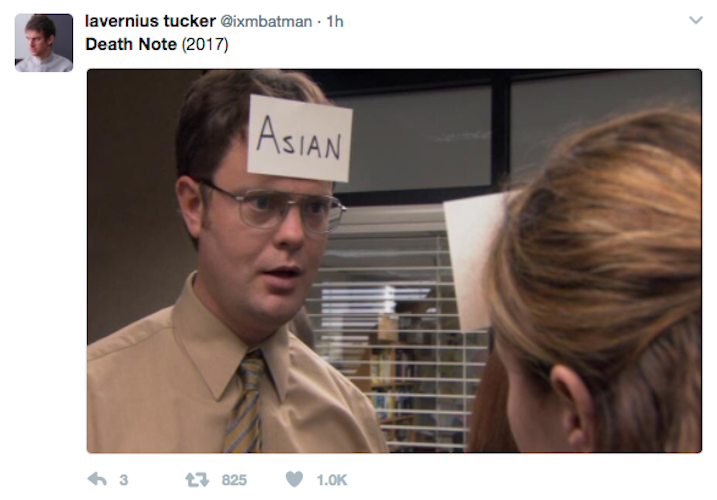
Case in point.
For those who don’t know what the hell I’m on about, here’s the deal: the day after I put up my review of Hero Aca Season 2, Netflix decided to release its first full-length trailer for the live-action Death Note film, slated for public release August 25. Now if anyone remembers my previous analysis of the teaser from a couple months ago, I tried my best to understand the overall disapproving reception of said teaser and to assuage fears and general concerns that may have surfaced as a direct result. After that post, I would have liked to think that I had done my job as a critic and writer.
Then the full trailer came out, and with it came a crashing wave of disdain, criticism, and absolute vitriol that I think I have ever seen towards an Americanized retelling of an originally Japanese story.
As of the time of this post, the dislikes on the trailer’s YouTube post outweigh the likes by about 6000 clicks as it’s currently sitting on about two and a half million views on the whole. The comments on the actual video (yes, I actually read through a page of YouTube comments; the things I do for you guys) are absolutely relentless, blasting the production-to-be for not accurately portraying its source material, bastardizing the franchise in general, and performing various things to the franchise I probably shouldn’t describe on this blog if I want to keep writing for it.
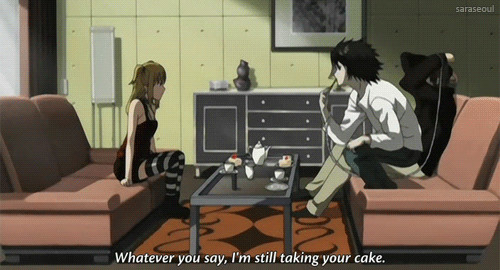
Although, either this scene or potato chips needs to be in the film.
Like I mentioned before, this is a pretty strong indicator my message got all the way through last time, and I could spend this editorial pretty much repeating everything I said in my last one, but not only would that be a waste of my time and yours, I feel like I need to directly address the masses here. Whereas I was addressing potential fears in my last talk about Death Note the movie, this time we’re actually looking at complaints, and I feel like that alters things drastically.
I mean, most of these aren’t even valid. My personal favorite one to date is, “This is what happens when you write Death Note in the Death Note.”
Oh, cry some more. Have you seen the live drama?
“SnYves, maybe it’s just me, but you seem a tiny bit more hostile than you usually are, and would you consider putting that baseball bat down?”
My apologies, reader. It’s just that few things get under my skin quite like ignorant stupidity, and insofar I’m yet to see one coherent, lucid, actually intellectual complaint about this trailer in any respect. But because I love pushing boulders up hills and firing spray bottles of water at raging grass fires, I’m using this editorial to provide counterarguments to each of the major complaints I’ve seen so far and explain exactly why my AP Lit teacher would boo them off the stage.
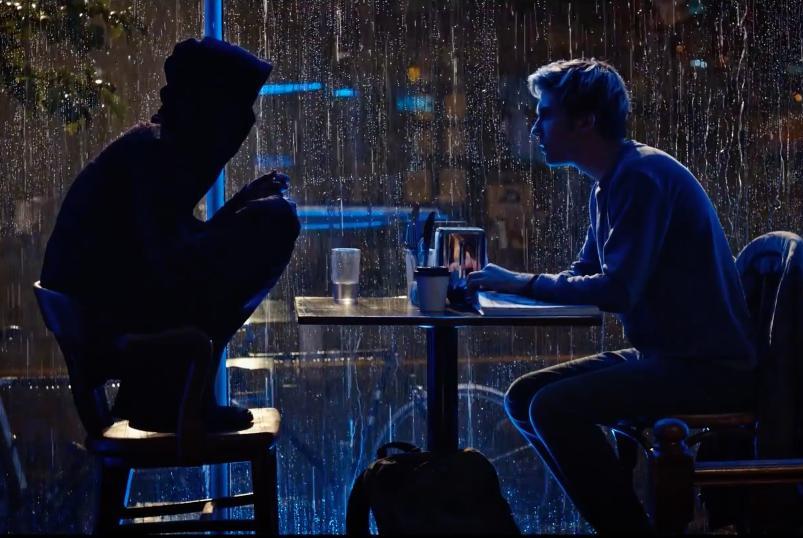
At the very least, it’s going to look good. Look at this shot!
The most common and easily the most numbminded one I’ve seen so far regards the movie not being a faithful retelling of the anime, that the movie is not a perfect live action reenactment of the story people came to love during the fall of 2006. Okaaaay, but why the hell would you want that in the first place? There’s literally no point in a product telling the exact same story as another, more famous product that’s been around for over a decade. If you want to see a faithful reenactment of your favorite anime series that badly, then what’s stopping you from just watching that series again?
What benefit is there to a remake of a series that does the exact same things as its source material? The first FMA series was a wonderful loose adaptation of an already popular manga, and even though it felt more like a side story compared to the plot I was familiar with from the books, it was still a damn good series by many accounts. If we don’t allow ourselves any flexibility when it comes to adaptations, then that imposes harsh limits on the amount of creativity screenwriters and producers are allowed to exercise when it comes time to make a script and storyboard.
This comment really gets to me personally because I happen to know firsthand that people can get behind stories that take some creative freedoms with their base material; as long as the end product is well put together, engaging, and worthy of merit somehow, most audiences are happy to forgive some of the incongruities they find between the story’s setting and they one they’re already familiar with. My longest fictional work is a side story for a webcomic you probably haven’t read, and I’ll admit to glossing over quite a few canonical details to get my setting and characters put together, but according to my reviews, nobody seemed to care that much about it. To them, they read a good story with a good plot and good dialogue, humor and character development, and whatever contrivances I had to conjure up to make it happen, they forgave.
I didn’t give them a verbatim retelling of the story they already knew, because that’s what the original did and I know better than to waste my time inventing something that already exists. Instead, I put together a new story using concepts and characters they were already familiar with on some level to create a new product. That’s what a lot of these diehard purist fanboys don’t seem to get. Their demands for perfect reenactments of the stories they already know are not only redundant, but they squelch any possibility for new stories to be made using the originals as baselines.
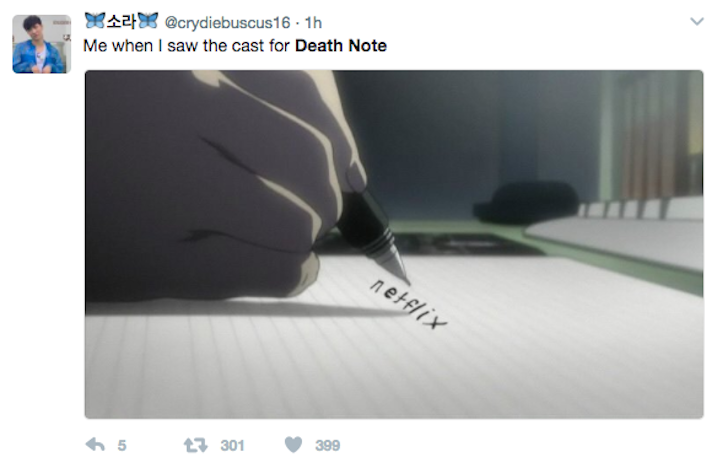
Don’t even want to wait for it to actually be bad, eh?
Then there’s the minor stuff, like L in the trailer acting comparatively violently to his counterpart in the anime, and everyone jumping on the bandwagon to rail against Keith Stanfield’s casting and, you guessed it, bang the whitewashing drum so they can claim the movie is just ticking a box under its diversity checklist.
For now, let’s ignore the fact that L literally gets into a fistfight with Light at one point in the original anime, and put aside his highly competitive tics that we saw during that one tennis match they played, a fairly strong indicator that L is not nearly as calm and collected a character as these people think he is. I don’t even need to argue that point, because it’s objectively wrong the same way 2+2=6 is objectively wrong.
What does need to be argued here is that last bit, and aware as I am that I’m probably retreading the same ground I did the last time, I still think it needs to be said here. The entire point of this movie is to take the original story of Death Note and transplant it to an American setting. When you do this from a storytelling perspective, that means adapting the characters, story events and dialogue to accommodate. The fact that Light Yagami is a Japanese character has absolutely nothing to do with this fact; in an American retelling of this story, set in an American city, having the main character switch ethnicity to match the setting is part of the package.
And in case you don’t believe me, in 2010 Japan did their own version of the classic 1990 American movie Ghost, starring - and this might come as a shock to some of you - Japanese actors. How about that! They also did the same thing in 2014 when they remade My Fair Lady under the name Maiko wa Lady; the setting was shifted from London to Kyoto Japan, the story was Japanized in just about every way imaginable, and it turns out that movie was actually pretty damn good! And all the while, nobody on the Japanese part of the internet seemed to be throwing their toys out of the playpen when they read Patrick Swayze’s character wasn’t going to be from Brooklyn.
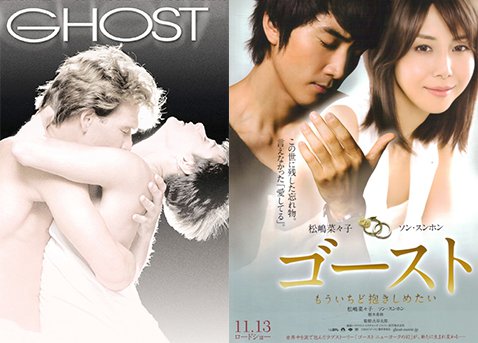
Yeah, no. This exists. Japan adapts American material the same way we do theirs.
This is how transferable settings work in the film industry. There wasn’t anything of value being lost in these films by moving the settings and changing the ethnic backgrounds of the characters. I ask again: what specifically about Light’s character (and just about everyone else’s, for that matter) requires him to be Japanese? And before you say, “his name,” I know for a fact that the male lead in Maiko wa Lady is not named Henry Higgins, so that’s not an answer.
And sure, you might turn around and say that the Seattle area is demographically 17% Asian, and to be fair, if there were any solid, young Asian-American actors who could carry the role of Light in the movie, then it’d be safe to suggest Netflix might have missed an excellent opportunity in casting their lead. But the point here is still the same: there is nothing about Death Note that forces the story to take place in Japan, and I’d imagine the casting was done with that in mind.
Oh, and when you say Keith Stanfield is in the movie just so it can someone representing a minority group, you’re also kinda running over Paul Nakauchi in the process, and suggesting that he’s just there to satisfy a quota is probably an even more egregious sin.
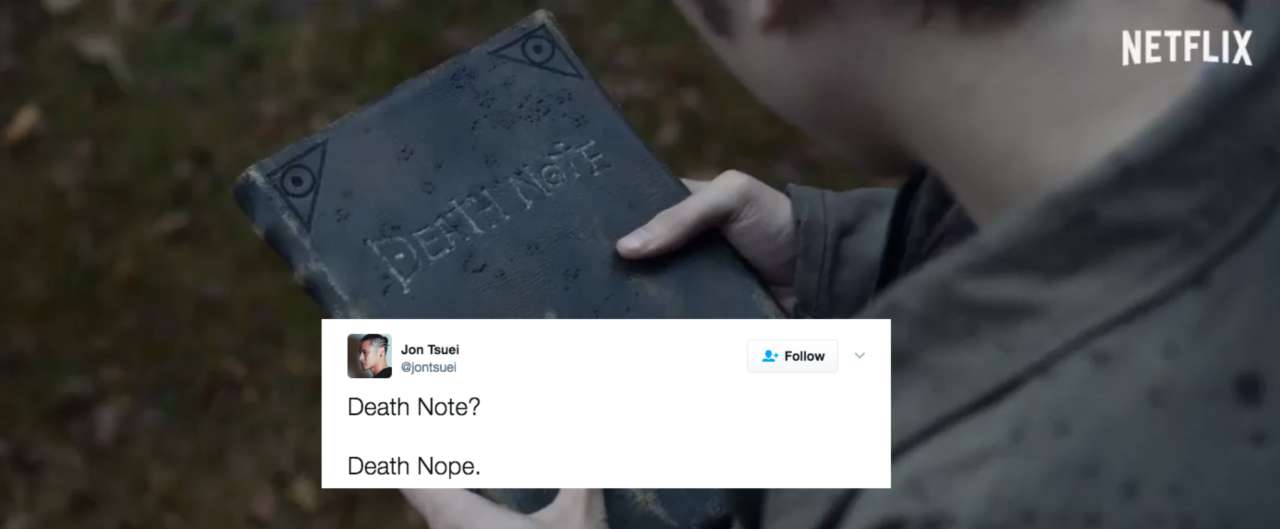
Sick burn.
Ugh, guys, in the end, this trailer just left me exhausted. I’m probably going to need to lie down after posting this. I really, really wanted to dissect this trailer for you and tell you what I liked and where I think the story is heading. The direction looks great, Willem DaFoe is going to knock it out of the park as Ryuk no matter how good or bad the rest of the film is, and the dialogue for the most part seems good at setting a darker, more foreboding tone than the original…
Oh right, let’s talk about that snip where Light says, “We’re not the good guys anymore,” shall we? A lot people seem to livid on that part in particular, but not only do we not know the context for that line, since it’s entirely possible that Light says that about how Kira is viewed in the eyes of the public, but…
Sorry, sorry. I need to stop. I could go on forever playing whack-a-mole with every single one of these whiny complaints and come nowhere close to thinning the herd. But what’s really annoying is that a lot of people seem to be condemning this movie a good five weeks before they’ve seen it, and that really gets to me as a critic because that’s the film equivalent of literally judging a book by its cover. In the end here, I just want people to actually see the movie. Don’t boycott it because you think it’s going to be bad. Don’t shove it away because you think it’s whitewashing. Put aside your premonitions and biases and just watch the movie for what it is, knowing it’s inspired by a series most of us love dearly. And if it turns out bad, you’re free to go back to the internet and post about how right you were and nobody will fault you for it.
But if it turns out good, then allow me to preemptively say, “I f***ing told you so.”
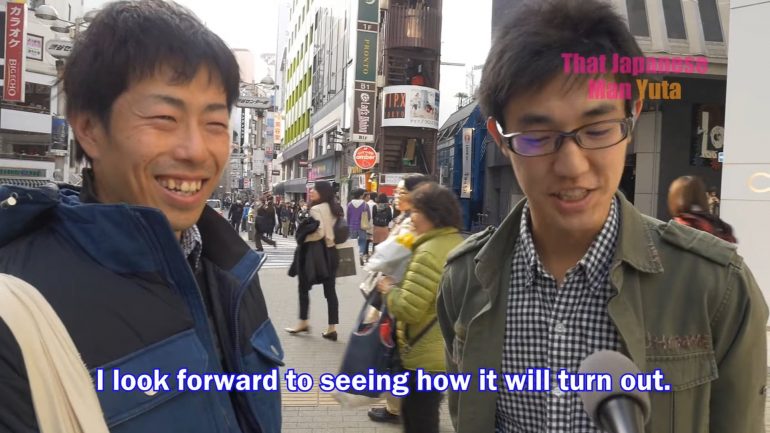
As should everyone else! Judge things on their own merits, not on your initial presumptions.
Next time: It doesn’t sound like a pan anymore